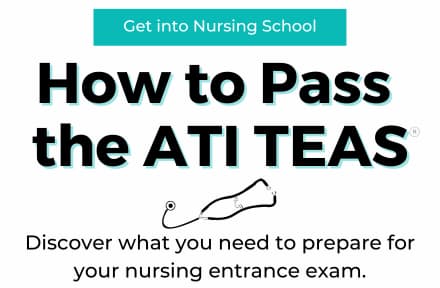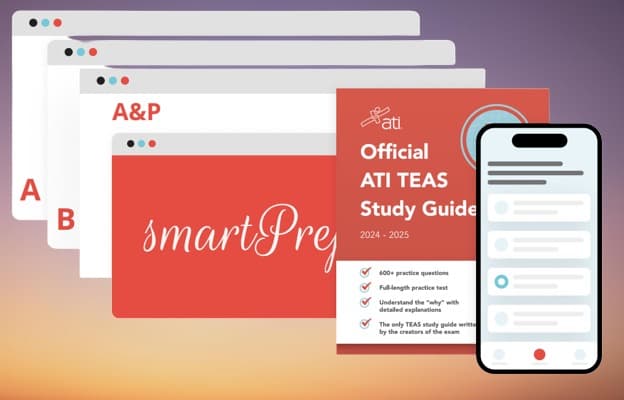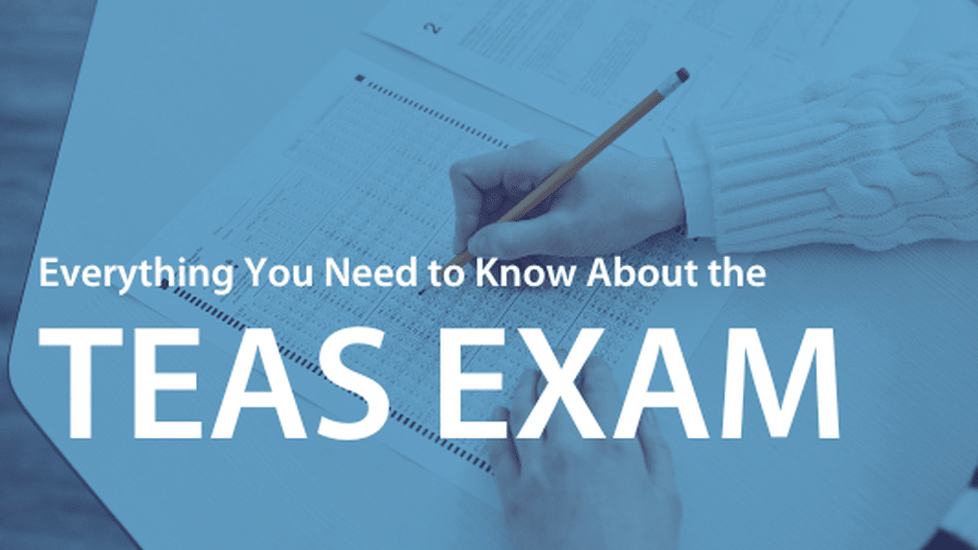Introduction
The TEAS, or Test of Essential Academic Skills, is a crucial step for aspiring healthcare professionals on their path to nursing school or other allied health programs. A strong TEAS score demonstrates your readiness for these programs’ academic endeavors. A strategic study approach is essential to maximize your chances of success.
This guide equips you with a powerful arsenal of study techniques designed to help you master the TEAS:
- Practice Targeted Content Review:
The TEAS covers a variety of subjects: reading comprehension, math, science, and English language usage. Utilize TEAS prep resources or course materials to identify your strengths and weaknesses. Focus your review on areas that require more attention.
- Use Active Learning Techniques:
Don’t just passively read! Engage with the material through active learning techniques. Take detailed notes, create flashcards to test yourself, or explain concepts aloud to solidify understanding.
- Use Review Guides and Practice Tests:
TEAS review guides provide a comprehensive overview of core concepts. Regularly practicing with TEAS-specific practice tests helps you identify areas for improvement and simulates the actual exam experience.
- Create a Personalized Study Schedule:
Develop a realistic study schedule that allocates dedicated time for each TEAS content area. Prioritize challenging topics and schedule review sessions accordingly.
- Manage Your Time Well:
Time is of the essence on the TEAS. To optimize your study sessions, utilize time management techniques and tools like setting timers and avoiding distractions. During breaks, review flashcards or key concepts to maximize your time.
- Practice Relaxation Techniques:

Test anxiety can hinder performance. To manage stress, develop healthy habits like regular exercise and meditation. Also, practice deep breathing or visualization exercises before and during the exam to stay calm and focused.
- Talk Positively About Yourself:
Challenge negative thoughts with positive affirmations. Focus on your strengths and visualize yourself succeeding.
- Get a Good Night’s Sleep:
Adequate sleep the night before the test is a priority. Being well-rested ensures you are alert and ready to perform your best.
- Use These Tips to Tackle Multiple-Choice Questions:
- Read the question-and-answer choices carefully, underlining keywords.
- Eliminate answer choices that are incorrect or don’t match the question.
- If unsure, choose the answer that best reflects the overall theme of the passage.
- Use These Tips to Tackle Fill-in-the-Blank Questions:
- Read the sentence surrounding the blank to understand the context.
- Consider keywords and choose the answer that best completes the sentence’s meaning.
- Use These Tips to Tackle Essay Questions:
- Quickly brainstorm and organize your thoughts before writing.
- Develop a clear thesis statement and structure your essay with a strong introduction, body paragraphs, and a conclusion.
- Utilize supporting evidence and relevant examples from your studies to strengthen your arguments.
Sample TEAS Test Questions
Here’s a small set of sample TEAS test questions that reflect the format and difficulty level of the actual exam across the different content areas:
Reading Comprehension:
A passage about the benefits of exercise might ask:
- According to the passage, what is NOT a benefit of regular exercise?
Math:
A question might ask you to:
- Convert 10 milligrams (mg) to grams (g). (1 gram = 1000 milligrams)
Science:
A question might ask you to:
- Identify the function of the mitochondria in a cell.
English Language Usage:
A question might ask you to identify the following:
- Correct pronoun usage in a sentence.
By implementing these effective study techniques, you’ll be well on your way to conquering the TEAS and achieving the score that unlocks your healthcare education goals. Remember, consistent effort, strategic planning, and a positive attitude are the keys to success!
Resources to Fuel Your TEAS Success:
Having a solid foundation of knowledge and effective study strategies is critical, but utilizing the right resources can significantly enhance your TEAS preparation. Here are some valuable resources to consider:
Review Guides:
- ATI TEAS Test Prep Book: Developed by the test creators (Assessment Technologies Institute), this official guide provides a comprehensive overview of TEAS content areas, practice questions, and answer explanations.
- McGraw-Hill TEAS Prep: This review guide offers in-depth content review, practice tests, and access to online resources like flashcards and quizzes.
Online Courses:
Online TEAS prep courses provide additional structure and support for your studies. Look for courses that offer:
- Video lectures by experienced instructors
- Interactive practice tests with personalized feedback
- Access to online communities or forums for peer interaction
Study Groups:
Studying with a group can be a powerful tool for boosting motivation, knowledge retention, and understanding challenging concepts. Look for classmates or peers preparing for the TEAS to form a study group. Here are some benefits of studying in a group:
- Knowledge sharing: Each member can contribute their strengths and clarify doubts for others.
- Practice test review: Discuss approaches to tackling different question formats and analyze mistakes.
- Motivation and accountability: Group study can keep you focused and on track with your study goals.
Sample Study Schedules
The ideal TEAS study schedule depends on your learning style, available time, and the strength of your foundational knowledge. Here are a few sample schedules to get you started:
Sample Schedule 1: Intensive 6-Week Plan (for highly motivated students)
- Dedicate 4-5 hours daily for studying
- Allocate specific times for each TEAS content area (Reading, Math, Science, English)
- Include practice tests and review sessions throughout the week
Sample Schedule 2: Balanced 8-Week Plan (for students with moderate time commitments)
- Devote 3-4 hours for studying 3-4 days a week
- Schedule 2-3 dedicated study days for focused content review
- Include practice tests and spaced repetition techniques throughout
Sample Schedule 3: Flexible 12-Week Plan (for busy students with limited time)
- Study for 2-3 hours, 2-3 days a week
- Focus on targeted content review based on identified weaknesses
- Utilize shorter study sessions with active learning techniques like flashcards
Remember, these are just samples. Adapt them to fit your specific needs and preferences. The most important factor is consistency and dedication to your TEAS preparation.
Conclusion
Passing the TEAS requires a strategic approach that combines effective study techniques, valuable resources, and a personalized study plan.
This guide has equipped you with a toolkit of strategies to strengthen your foundational knowledge, manage your time effectively, and conquer test anxiety. Utilize reputable review guides, explore online courses for additional support, and consider the benefits of collaborating in a TEAS study group.
Remember, the most effective study methods are the ones that work best for you. Experiment with different techniques, find what keeps you engaged, and prioritize consistency in your preparation. Approach the TEAS exam confidently, and you’ll be well on your way to achieving your healthcare education goals.




